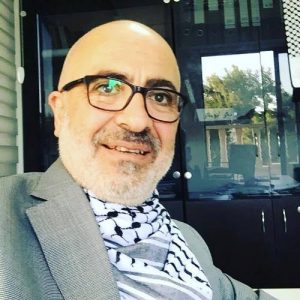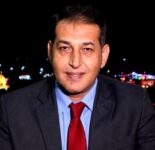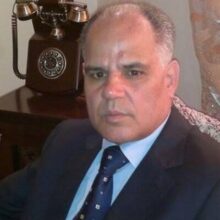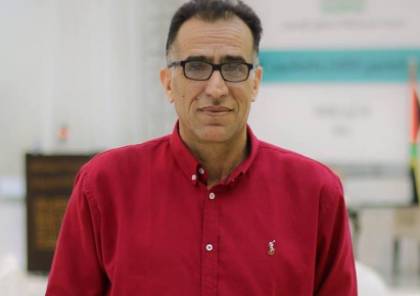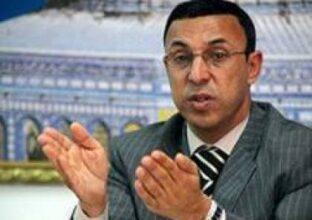I am about to be displaced from Gaza for a second time
Al-Khamisa News Network - Gaza

By Mostafa Ibrahim
The original title of this piece was: “Return to Gaza: When the city no longer resembles its old face.” I wrote it on 10/7/2026, but I did not publish it for fear that this postponed moment would come — the moment of displacement once again. It seems fate insisted on calling it back; displacement has become one of our rituals in Gaza.
Displacement is not merely leaving; it is the wrenching of the soul from the body. Every step is weighed down by pain and anxieties: what do we carry with us? What do we leave behind — blankets, bedding, tools? Where are we headed? The world around us watches as if observing a passing camping trip. Half of Gaza is now under the control of the Israeli army, while the specter of a comprehensive final military decision looms on the horizon.
We are preparing for forced displacement toward the south of the Strip, into the unknown, after my family’s homes in Rafah were completely destroyed. My brothers and sisters are scattered around the outskirts of Khan Younis; I, however, am still unable to find a house or even a tent to shelter in.
On February 2 I returned to my city, Gaza, after an eight-month absence. I went back to a city I thought I knew by heart: its streets and alleys, the smell of its sea, even the faces of its weary people. But I found another city — one that resembles Gaza in broad strokes but betrays it in the details.
I walked through streets I thought I would never forget. I recognized some, misread others, while the rest felt foreign, as if I were a stranger there. Nothing was as it had been… even the ruins had changed, even the pain had taken on a new shape.
The city was no longer as I had left it, and I was no longer who I had been. The pain, the losses, the breakdowns I endured over two years of successive defeats made me a different person, and Gaza itself shed its old skin and turned ash-colored.
But the greatest loss was not in the collapsed lanes or the destroyed houses; it was inside me. I lost Basil, my eldest son, the first light of my life. He left behind his wife and two small daughters with wide eyes, as if still asking: where is my father?
Every corner of Gaza reminds me of him; indeed the whole city has become his image and his shadow. I would walk and see him at my side, hear his laugh — a laugh that combined seriousness and warmth. I would see him sitting in front of the cup of coffee he made himself in the morning, talking about politics or waiting for a Barcelona match he loved.
Basil was not just my son; he was my friend, my companion and the voice of reason at home. He loved the sea and swimming, running like a happy child whenever he neared the water. He wrote literary pieces and mature political analyses that reflected rare awareness and a brave stance. His articles were an extension of his national and human upbringing and his steadfast faith in the homeland despite the defeats.
Basil’s departure was not the only wound; my house was also destroyed. The house that carried me, my family and my memories no longer exists. I could not bring myself to visit its site; the heart cannot bear to see its memory crushed beneath the rubble.
I left everything in it: my photos, my papers, my books, my children’s laughter, and the long evening voices when we gathered around the table or watched the news. I remember Basil putting Fairuz and Marcel Khalife on the tape player, or on the car stereo on the way to Rafah, and reciting Mahmoud Darwish’s poem “Ahmad al-Arabi.”
That house was not just walls; it was the small homeland I built with my own hands, and the quiet, elegant street in the nice neighborhood was part of it. Today its calm has been stolen and its features have become gray lines in a memory weighed down by pain.
After all this time I remain displaced, without a home to shelter me, without walls on which to hang a picture or a postponed dream. This displacement within the homeland, inside the city I belong to, is the harshest thing a person can endure.
Still, a small thing that resembles hope seeps in — not a loud hope, but that distant light at the end of the tunnel: our love for this land that has not been taken from us despite all the losses; the look of my granddaughter trying to understand and smile despite her father’s absence; the sea, which even in its sorrow, still stretches out and tells us: life has not ended yet.
We who remain carry the memory of those who have gone: their homes, their laughter, their voices. We walk with it among the rubble not to forget, but to remember that our story here has not ended, and that this land, despite everything, is still our home.
Today we leave Gaza again. During the eight months since our return, we felt a kind of temporary stability. We tried to make a home in a house that was not truly ours and to gather what remained of our spirits. But today we are forced once more to flee my beautiful city, whose streets, alleys, history and cultural heritage I know by heart.
I no longer tire myself thinking about what comes next, for the next thing is clear: the occupying state will seize what remains of a city half destroyed, and what is left will be little more than ruins and houses struggling to stand.

